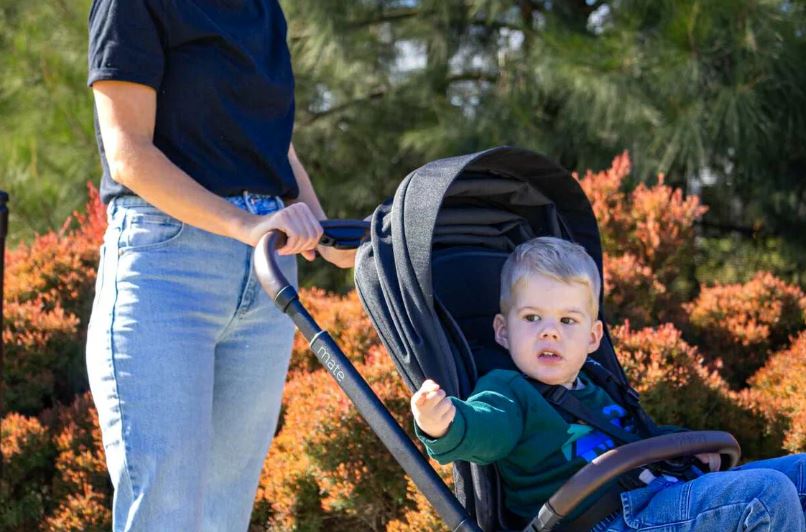Types of Baby Pram — A Practical Guide to Picking the Right Ride for Your Little One

Types of Baby Pram — A Practical Guide to Picking the Right Ride for Your Little One
Choosing a pram is one of the first big gear decisions new parents face. Modern baby prams come in many shapes and styles, each designed for different ages, terrains, lifestyles and budgets. This guide breaks down the main types, what they're best for, pros and cons, and quick tips to help you pick the right one.
Quick primer: pram vs stroller
People often use the words interchangeably. Traditionally, a pram (perambulator) refers to a lie-flat bassinet-style carriage for newborns; a stroller usually means a seat for older infants and toddlers. Today many products blend both functions — think of them as different modes of the same family.
Main Types of Baby Pram
1. Bassinet / Carrycot Pram
Best for: Newborns who need to lie flat for spinal & airway safety.
Pros: Flat sleeping surface, excellent for long daytime naps.
Cons: Bulkier, usually used only for the first 4–6 months unless part of a travel system.
2. Travel System
Best for: Parents who want an all-in-one solution (car seat + stroller).
Pros: Easy car-to-stroller transfers, good for frequent driving.
Cons: Heavier than single-mode strollers; car-seat compatibility matters.
3. Convertible / Modular Pram
Best for: Growing families who want flexibility.
Pros: Converts from bassinet to seat, sometimes to double or tandem; long-term use.
Cons: More expensive; can be heavier and more complex.
4. Compact / Lightweight / City Pram
Best for: Urban life, small car trunks, public transport.
Pros: Easy to fold, light, small footprint.
Cons: Less suspension and storage; not ideal for rough terrain.
5. All-Terrain / All-Weather Pram
Best for: Parks, gravel paths, countryside walks.
Pros: Large wheels, strong suspension, comfortable ride.
Cons: Bigger, heavier, harder to store; often pricier.
6. Jogging Pram / Jogger
Best for: Active parents who run or hike with baby.
Pros: Three-wheel design, handbrake, air-filled tires for stability at speed.
Cons: Bulky and heavy; not ideal for quick errands or compact spaces. Only use certified jogging prams for running.
7. Umbrella Stroller / Lightweight Folding Stroller
Best for: Quick trips, travel, grandparents' house.
Pros: Very light, cheap, compact folded size.
Cons: Minimal suspension, short-lived comfort for longer outings, limited recline.
8. Double / Tandem Pram (brief note)
Best for: Siblings close in age or twins.
Pros: Carries two children; some models stay narrow for doorways.
Cons: Heavy, large footprint, more expensive.
9. Reversible / Parent-Facing Strollers
Best for: Bonding with newborns and easy supervision.
Pros: Seat flips to face parent or world; great for early months.
Cons: Reversible seats can add weight and cost.
How to Choose: a short decision checklist
Where will you use it most? (city sidewalks vs trails)
Will you drive often? (measure trunk space)
Do you need newborn support (bassinet/lie-flat)?
Do you want a travel system or separate car seat?
How often will you fold/carry it? (one-hand fold is gold)
Budget vs. longevity: cheaper for short-term, invest for multiple children.
Safety & Practical Tips
Look for compliance with local safety standards (JPMA, EN, ASTM, etc.).
Five-point harness, reliable brakes, and sturdy locking mechanisms are non-negotiable.
Avoid long periods in car-seat-only positions for newborns during walks.
Don't overload the handle with heavy bags (risk of tipping).
Test the fold/unfold action before you buy — practice with one hand.
Maintenance Basics
Wipe frame weekly; wash fabric parts per label.
Keep wheel bearings and suspension clear of debris; lubricate if manufacturer recommends.
Check tire pressure (air tyres) and wheel condition regularly.
Store indoors or use a breathable cover to avoid UV and mold damage.
Final thoughts
There's no single "best" pram — only the best for your life. If you want long-term versatility, choose a travel system or modular pram with a good bassinet and reversible seat. If you need something light and commuting-friendly, a compact city pram or umbrella stroller will be your daily win. Match the pram to your terrain, storage space, and how you move (car vs public transit vs lots of walking), and you'll have a reliable companion for many happy (and nap-filled) outings
.